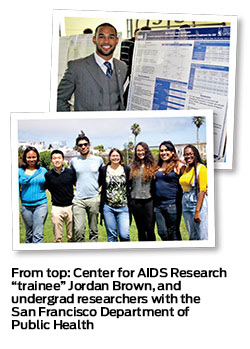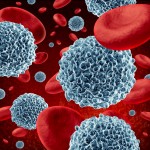 Forget ditching the schoolbooks for fun in the summer sun. As part of the Minority HIV Research Training Program at Case Western Reserve University in Cleveland, Ohio, undergraduate “trainees” gain hands-on experience by teaming up with top scientists at the school’s Center for AIDS Research (CFAR). During the program’s 10 years, 25 scholars have studied everything from immigrant health to HIV latency, each giving a poster presentation of their work at the session’s end. Jonathan Karn, PhD, head of the Case Western CFAR, says that HIV research and global health are gaining popularity. “Right now,” he says, “there’s a lot of excitement around a functional cure and eradicating the virus.”
Forget ditching the schoolbooks for fun in the summer sun. As part of the Minority HIV Research Training Program at Case Western Reserve University in Cleveland, Ohio, undergraduate “trainees” gain hands-on experience by teaming up with top scientists at the school’s Center for AIDS Research (CFAR). During the program’s 10 years, 25 scholars have studied everything from immigrant health to HIV latency, each giving a poster presentation of their work at the session’s end. Jonathan Karn, PhD, head of the Case Western CFAR, says that HIV research and global health are gaining popularity. “Right now,” he says, “there’s a lot of excitement around a functional cure and eradicating the virus.”
Similarly, at the San Francisco Department of Public Health’s Summer HIV/AIDS Research Program (SHARP), six under-graduates are working with the city’s researchers. Each “Sharpie” develops a unique project of interest—some of the topics this summer include using online tools to help gay men reduce their HIV risk, studying the resiliency of transgender Latinas and estimating populations sizes in the Middle East. “The program hopes to increase the number of researchers who come from minority backgrounds,” says Liz Kroboth of the city’s public health department. “Since those also happen to be the communities most affected by HIV, it makes sense to have people with an intimate understanding of those communities to be able to solve some of the HIV challenges we face.”
Summer Schoolin’
“Sharpies” and CFAR undergrads study AIDS research.






Comments
Comments